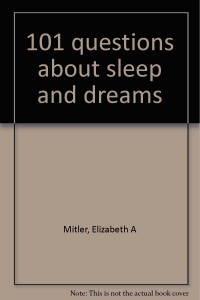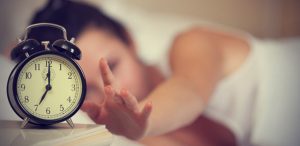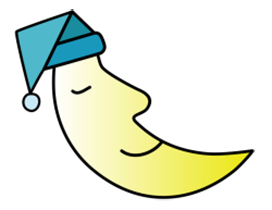How Much Sleep Do I Need?
The simple answer to that question is “that amount of sleep that allows you to be wide awake and alert the whole following day”. The real question is, “How can I find out if I need more or less than 8 hours of sleep?”
First you must establish a constant wake up time 7 days a week for at least 2 weeks. Assuming you do not have a sleep pathology like obstructive sleep apnea, you start with the knowledge that a normal average person needs about 8 hours of quality sleep per night. Why? Because about 40% of our total sleep time is “deep and restorative sleep” meaning 25% of our total sleep time is dream sleep (REM) and 15% of sleep time is slow wave sleep (delta). Simple math tell us that 40% of 8 hours is 3.2 hours of deep sleep. However, there are some rare individual that get 3.2 hours of deep sleep in only 4 hours of total sleep. On the other extreme are some unfortunate people that require 10 hours of total sleep to get the 3.2 hours of deep sleep. Over the years of sleep research, 3.2 hours has been the average number of deep sleep hours an individual needs to stay fully awake during the following day.
With the above facts let’s assume you need closer to 8 hours. To find your ideal sleep time, start with less than 8 hours sleep, i.e: 6 hours. If your normal sleep schedule is between 11p.m.-7a.m., stay awake until 1a.m. and wake up at the normal 7a.m. From there you progressively go to sleep 15 minutes earlier (12:45, 12:30, 12:15) each night until it takes longer than 10 minutes to fall asleep. That sleep time is your ideal duration of sleep. It may be slightly less than 8 hours or more than 8 hours but this is your ideal total sleep time.
In regards to children and adolescents in their second decade i.e.: between 10-20 years of age, it has been found that they require a minimum of 9 hours and 45 minutes. Stated another way if they only sleep 8 hours they are sleep deprived.
I hope this information is helpful to you in your quest for restful and restorative sleep. Should you have any questions about this or another sleep matter please do not hesitate to call us at 636-936-1809.
Richard E. Parcinski,
D.O. ,F.C.C.P. Fellow of American Academy of Sleep Medicine
Question from 101 Questions About Sleep and Dreams by Mitler and Mitler
The following is an excerpt from 101 Questions About Sleep and Dreams , by Dr. Elizabeth A. Mitler and Dr. Merrill M. Mitler
“Q: Just as I fall asleep, I have the frightening feeling that I cannot move. Is this abnormal?
A: This symptom is called ‘sleep paralysis’ and occurs without serious additional problems in 1 of every 20 people. Some people with sleep paralysis have the uncomfortable sensation of falling and ‘wake up with a start’ before they feel completely paralyzed. Waking up with a start is often called ‘hypnic jerk’. Scientists think that this paralytic condition is an incomplete triggering of a REM sleep period that brings on the profound muscle relaxation of REM sleep. The fright is sometimes overpowering even when the person completely understands the temporary and harmless nature of the paralysis. In extreme cases, drugs that block REM sleep are used to treat the condition.”
Sometimes people may feel as if “someone is in the room” while they have sleep paralysis, which can be a scary feeling. The important thing to note in this post, is that it is a common condition that most people experience from time to time. In the majority of cases, it is a temporary discomfort that is not a serious medical problem. If you experience this on a regular basis, a sleep consultation may be a good step towards understanding and treating the condition.
Sweet dreams from www.tricountysleepmedicine.com. And, as always, “Do your best to get your rest.”#sleep #paralysis #dreams #REM
Here is a link to the book: 101 Questions About Sleep and Dreams
http://amzn.to/1Em1FTn

Alcohol’s relation to Insomnia
This is something that gets overlooked all too often. Most people have witnessed an intoxicated person in a “deep #slumber” or “passed out”, but this is only as it appears to be when it comes to the quality of #sleep he or she is experiencing.
#Alcohol actually cuts down on #REM sleep and inhibits the brain’s ability to restore and re-energize itself. Take a look at the article from the University of Missouri School of Medicine to discover some of the ways alcohol can impair sleep, and possibly cause #insomnia
“During acute alcohol withdrawal, subjects displayed a significant increase in wakefulness with a reduction in rapid eye movement (REM) and non-rapid eye movement sleep,” Thakkar said. “This caused insomnia-like symptoms and suggests an impaired sleep homeostasis.”
Read the full article here Alcohol Use Can Impair Sleep, Cause Insomnia
Why are Dreams so Strange and Silly?
“During REM sleep, our body is almost completely paralyzed. The heart and other automatically controlled muscles still function, but our head and limbs really cannot move very much. Also during REM sleep, there is intense stimulation getting to those parts of our brain that interpret what we see, hear and feel. However, this stimulation is coming from within the brain itself. And, the stimulation is occuring at a time when the muscles we use to move about and orient our eye and ears to stimulation are inoperative.
Even under these conditions, our mind does its job and tries to make sense of what it ‘sees, hears and feels’. Our mind ‘making sense’ of stimulation coming from inside the brain while our muscles are paralyzed leads to the bizarre experiences we know as dreams. Doctors believe that many common features of dreams stem from the physiological paralysis that occurs during REM sleep. For example, many people dream about falling, being unable to get away from a pursuer or being unable to move fast enough to prevent some accident.
All these kinds of dreams have the common feature of movement impairment which may stem from the brain’s recognition of paralysis during REM sleep.”
-excerpt from 101 Questions About Sleep and Dreams , by Dr. Elizabeth A. Mitler and Dr. Merrill M. Mitler
#sleep #dreams #REM

